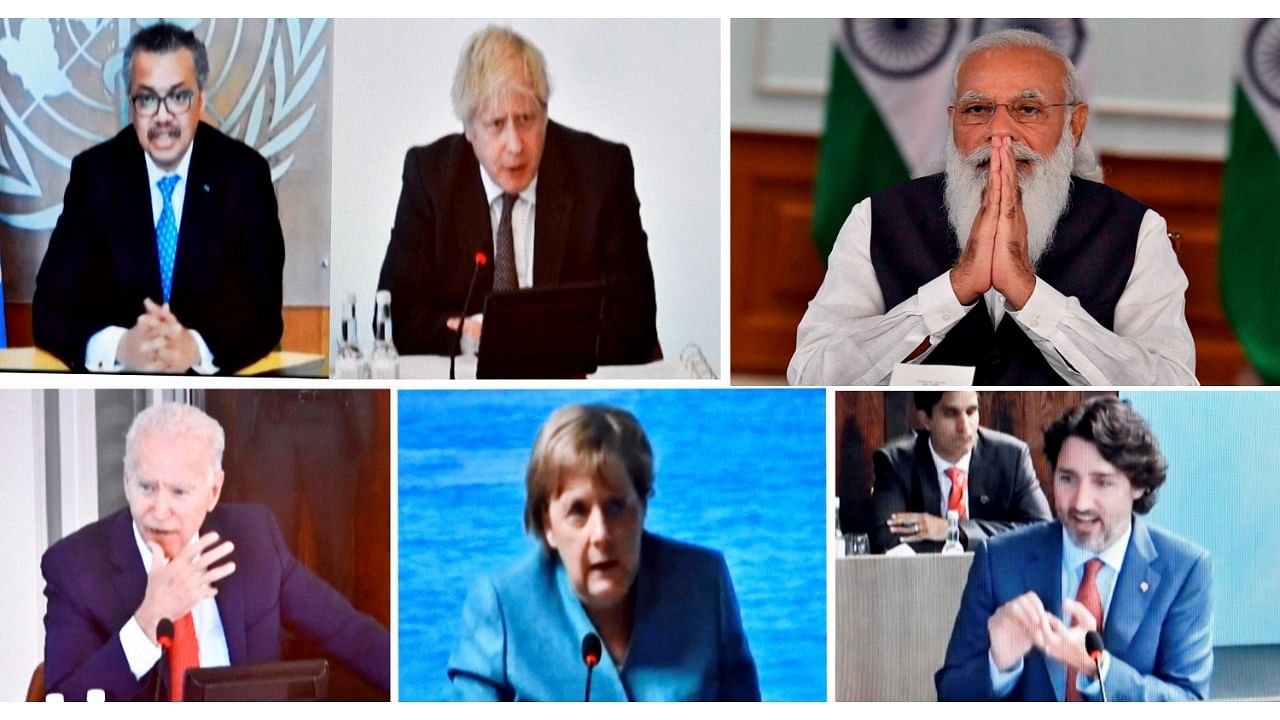
Prime Minister Narendra Modi on Sunday warned about “inherent vulnerabilities” in open societies and stressed “ensuring a safe cyber environment” on social media platforms, even as he joined the leaders of the G7 nations and others in pledging to uphold “civil and political rights in both physical and digital spheres”.
As the G7 summit concluded at Cornwall in South West England, the leaders of the bloc, as well as guests invited to take part in the conclave, issued a statement reaffirming their “shared belief in open societies, democratic values and multilateralism as foundations for dignity, opportunity and prosperity for all”.
India was one of the four guest nations invited to take part in the conclave and it too endorsed the G7 statement on open societies, but only after making the United Kingdom – the host of the summit – drop its direct criticism of intentional internet shutdowns by the governments.
PM Modi on Saturday and Sunday took part in the G7 outreach sessions virtually as he dropped his plan to travel to the UK for the conclave in view of the second wave of the Covid-19 pandemic in India. He was the lead speaker at the session on Open Societies and Open Economies on Sunday.
Also read: India natural ally of G7 countries: PM Modi
The Prime Minister referred to India’s civilisational commitment to democracy, freedom of thought and liberty.
He highlighted the “revolutionary impact” of digital technologies on social inclusion and empowerment in India and also underscored the vulnerabilities inherent in open societies and called on tech companies and social media platforms to ensure a safe cyber environment for their users.
His views were appreciated by other leaders in the conclave, P Harish, Additional Secretary (Economic Relations) at the Ministry of External Affairs (MEA), told journalists in New Delhi.
The Modi Government was recently at loggerheads with Twitter and WhatsApp over the implementation of the new Information Technology rules. The social media companies had reservations about the new IT rules and they argued that some sections of it might be in conflict with the right of privacy and freedom of speech of the users.
The leaders of the G7 nations – Canada, France, Germany, Italy, Japan, the United States and the United Kingdom – as well as the European Union and four guest nations – India, South Africa, South Korea and Australia – took note of the threats posed to “freedom and democracy” by “rising authoritarianism, electoral interference, corruption, economic coercion, manipulation of information, including disinformation, online harms and cyber attacks, politically motivated internet shutdowns, human rights violations and abuses, terrorism and violent extremism”.
Earlier, the Foreign and Development Ministers of the G7 nations had held a meeting on May 5 to set the stage for the summit. They had issued a joint statement, expressing concerns over “actions by states to intentionally disrupt their own populations’ access to, or dissemination of, information, knowledge, and data online”.
They had noted that internet shutdowns and network restrictions had undermined civic space, online and offline and unjustifiably limit access to information and the rights of peaceful assembly, association and freedom of expression online.
The Modi Government in New Delhi had drawn flak for imposing restrictions, including internet shutdowns, in Jammu and Kashmir (J&K) for several weeks after the erstwhile state had been stripped of its special status and reorganised into two Union Territories in August 2019.
It had also been criticised for shutting down the internet during the early days of the protests by the farmers against the new agricultural laws.
A source in New Delhi said that identifying politically motivated internet shutdowns as one of the threats to freedom and democracy in the joint statement on open societies was consistent with the position of the Government of India. Such disruptions should be seen differently from the internet shutdowns that the governments sometimes need to impose to maintain law and order and to protect people. “Open Societies and personal freedoms require careful nurturing. Must be on guard against fake news and digital manipulation,” External Affairs Minister S Jaishankar had tweeted on May 5, after conveying India’s position on the issue in a virtual meeting with his counterparts in G7 nations.
Check out DH latest videos:
